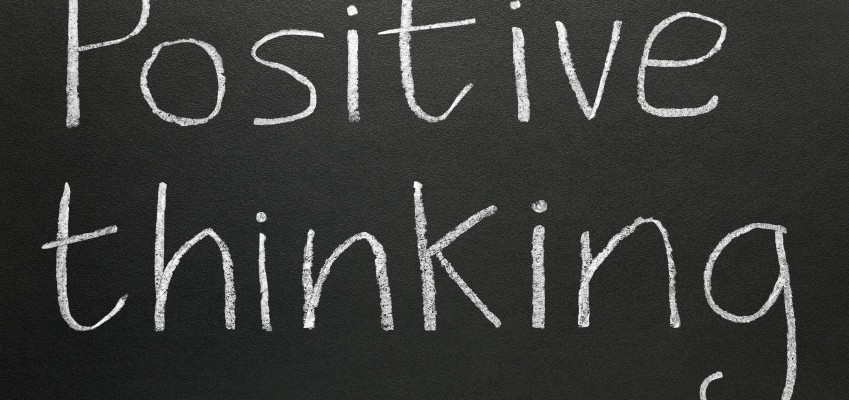A friend of mine recently told me that he is starting to practice positive thinking: “I have too much negativity in my life” he said, “I need to start thinking about things more positively”. He was right of course, mindsets do matter, and there is plenty of research showing the merits of attitudes like optimism and gratitude. However, there are also some misconceptions about positivity that can sometimes lead positive-thinkers to regress.
Here’s why “positive thinking” per-se does not work, and more importantly – what does:
1. Dump “positive”:
It is tempting to think that one can turn bad things into good ones. Some things could indeed be interpreted both ways, but many events in life are downright bad. The attempt to sugarcoat them is futile. Instead of thinking about them more positively, you simply end up thinking about them more. Taking into account the fact that we are all predisposed to notice bad more than good (a phenomenon called the “negativity bias” [1]), the possible outcome could be a harmful over-focus on the negative.
In 2010 I embarked on a personal journey to find inner peace. I rode a motorcycle from New York to California, and during the five weeks I spent on the road I met with several authors and scientists. On the fifth day of this ride (see Ride of Your Life [2]) I met with Dr. Barbara Fredrickson [3], who is one of the leaders of the Positive Psychology movement. She has seen many people first learn about positive psychology and then resolve “to be positive”, but her research shows that positive emotions cannot be forced:
I think actually that when people learn about the science of positive emotions or the positivity ratio, there’s a temptation to make your motto “I’m going to be positive”…but that strategy backfires, because there is a huge difference between genuine positive emotions and insincere positive emotions…people learn about it and they so earnestly want to feel better that they strong-arm themselves into positive emotions.
Fredrickson’s suggests to replace “positive” with “open”:
It’s true that bad is stronger than good – bad events affect us more than good events, but the other asymmetry that really goes under the radar most of the time is that good is much more frequent than bad. In the distribution of all the “nows”, all of the present moments, by far most of these moments will be offering good experiences: the beauty of nature, the kindness of other people, interesting ideas to think about…a much better motto than “be positive” is “be open”, or to be appreciative and kind.
2. Dump “Thinking”:
It may be useful to adopt a more positive way to think about things, but when you proactively conduct yourself positively in the real world, you have the opportunity to actually affect them – actively. Fredrickson describes this as making a movie, instead of watching one:
I think that what makes a difference between, say, seeing a movie and doing a kind thing for another person, is your own agency: you can take credit for it, and you can feel not only that you brought joy, or convenience, or some kind of relief to somebody else, but you can appropriately take credit for those actions. So there’s a mixture of a number of emotions, including pride. Pride tends to get a bad rep but I think that when we do things that are virtuous we should feel good about it because that reinforces future virtuous behavior. When agency is involved – when you control and make decisions about your good actions – then there’s a longer positive emotional yield because it’s more complex. Don’t watch the movie, make the movie!
Replace positive with open and thinking with doing and you get “open doing” or “open experiencing”. The resulting strategy is simple:
1. Be Open: Just like Jim Carrey in the movie Yes Man. Widen your aperture of experience. Accept all (reasonable) things that you could possibly do. Consider new possibilities, new experiences that you normally refuse. The more you experience, the more likely you are to come across new events and new opportunities to absorb the good, and to proactively do good.
2. Do good: Instead of sitting back and watching the world go, use every opportunity you have to positively turn things around. There is much within your control. You can choose to forgive, to thank, to give, and to connect. These are all behaviors will reward you with lasting positive emotions.
So if you wake up on Monday morning, the dog pees on the carpet, and your inbox is collapsing under a load of work-related messages, don’t linger at home trying to figure out the positive angle. Instead, go outside, and don’t let it block your mind from observing the blue of the sky, the scents from the bakery, or the calm of the breeze. Life is generally good. There’s no need to artificially make it positive. Only to keep your ears and eyes open to the wealth of good that is already there.
[1] http://en.wikipedia.org/wiki/Negativity_bias
[2] http://www.RideOfYourLife.com
[3] https://www.youtube.com/watch?v=6RB8NKV9-Nw


